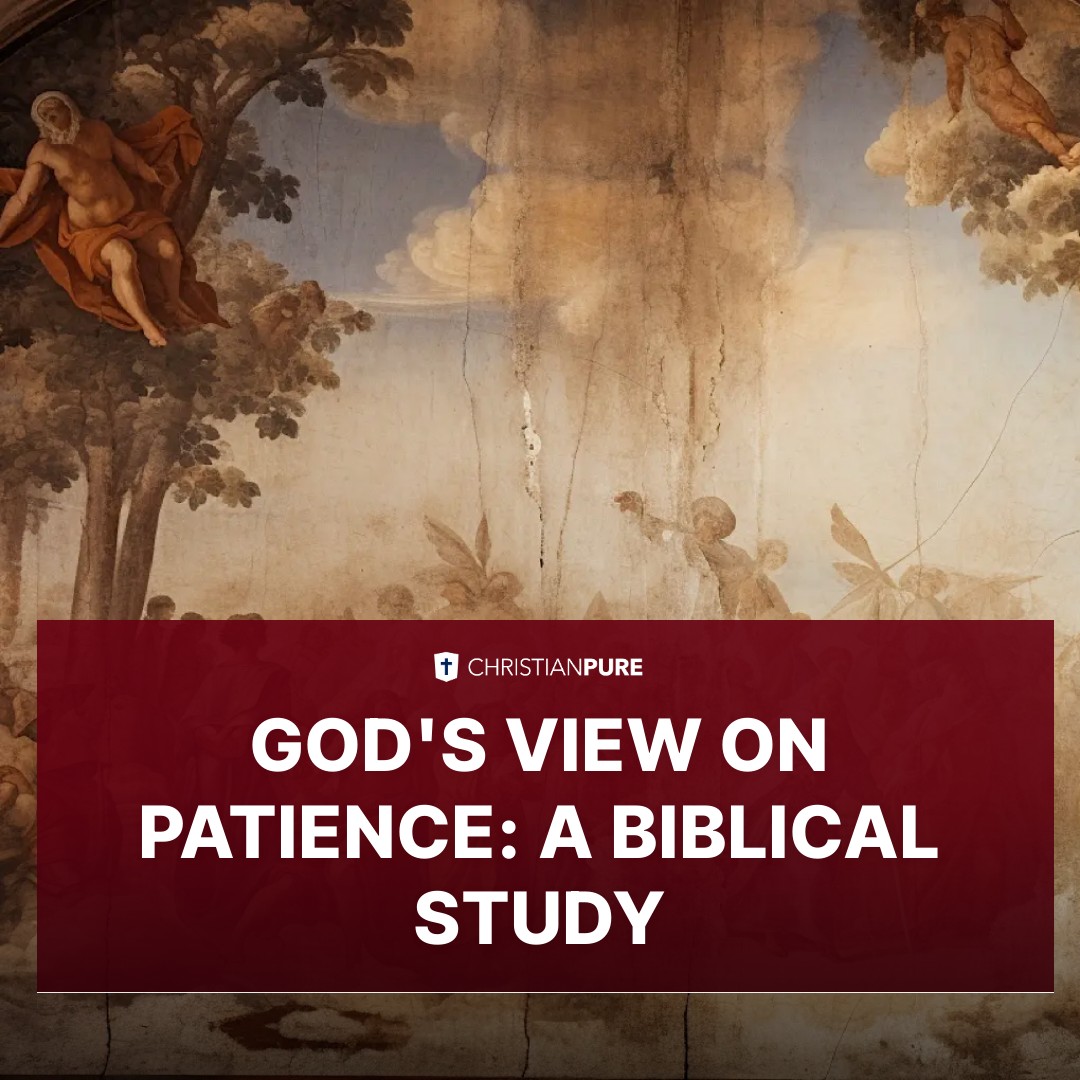You have probably heard the term 'polygamy' before. It's one of those terms that's often thrown around in discussions about marriage, relationships, and religion. But what does it really mean? In the simplest terms, polygamy refers to the practice of having more than one spouse at the same time. It's a practice that's been around for centuries and is still prevalent in some cultures and religious communities today.
However, the subject of polygamy can be a contentious one, particularly when it comes to its place in religious doctrines. Different religious communities have different beliefs and practices regarding polygamy. Some condemn it, while others condone it. But what about Christianity? Is polygamy a sin in Christianity? This is a question that has puzzled many, and it's what this blog post will attempt to answer.
Before we delve into the topic, it's important to understand that the concept of polygamy isn't a simple one. It's a complex issue that's closely tied to cultural, historical, and religious contexts. So, let's start by understanding what polygamy really means.
Understanding Polygamy: A Brief Overview
Polygamy is derived from the Greek word ‘polygamia’, where 'poly' means many and 'gamos' means marriage. Therefore, polygamy simply refers to a form of marriage where a person simultaneously has more than one spouse. This practice can take two forms: polygyny, where a man marries multiple wives, and polyandry, where a woman marries multiple husbands.
Historically, polygamy has been practiced in many cultures across the world. This practice was often linked to social, economic, or political reasons. For example, in some societies, polygamy was practiced to increase family size for labor or to form alliances between families or tribes. In other societies, polygamy was practiced due to a skewed sex ratio or for inheritance purposes.
In the context of religion, polygamy has been a contentious issue. Some religions, like Islam, permit polygamy under certain conditions. However, other religions, like Christianity, seem to have a more complex relationship with this practice. But is polygamy a sin in Christianity? To answer this question, we need to delve into the Christian perspective on polygamy.
Is Polygamy a Sin? The Christian Perspective
When it comes to answering the question, "is polygamy a sin in Christianity?" the answer isn't straightforward. This is because Christianity, like many religions, is not a monolithic entity. It consists of various denominations and sects, each with their own interpretations of the Bible and Christian doctrines.
However, if we look at the mainstream Christian perspective, polygamy is generally viewed as a sin. This belief is based on the concept of monogamous marriage, which is considered a divine institution established by God. According to this perspective, marriage is a sacred union between one man and one woman, reflecting the relationship between Christ and the Church.
This belief that monogamous marriage is a divine institution is reinforced by various passages in the Bible. For example, in the book of Genesis, it is stated that "a man shall leave his father and his mother, and be joined to his wife; and they shall become one flesh" (Genesis 2:24). This verse is often interpreted to mean that marriage should be between one man and one woman.
However, as we will see in the next section, there are also instances of polygamy in the Bible. This has led to debates and differing views on the question, "is having multiple wives a sin?"
Polygamy in the Bible: Old Testament vs New Testament
The Bible, which serves as the sacred text for Christians, contains both the Old Testament and the New Testament. When it comes to the topic of polygamy, these two sections seem to offer different perspectives.
Looking at the Old Testament, there are several instances of polygamy. Notable figures like Abraham, Jacob, David, and Solomon had multiple wives. However, it's important to note that these instances of polygamy are presented as historical facts, not as divine endorsements of polygamy. Moreover, most instances of polygamy in the Old Testament are accompanied by stories of conflict and disharmony, suggesting that polygamy may not be the ideal form of marriage according to the Bible.
On the other hand, the New Testament seems to promote monogamy. Several passages suggest that marriage should be between one man and one woman. For instance, in the book of Matthew, Jesus refers to the Genesis passage about a man leaving his parents and being joined to his wife, implying that marriage should be monogamous. Furthermore, in his letters to the early Christian communities, the Apostle Paul encourages spouses to love and respect each other, again implying a monogamous relationship.
So, is polygamy a sin in the New Testament? The New Testament does not explicitly label polygamy as a sin, but it does seem to endorse monogamy as the preferred form of marriage.
The Debate: Does Christianity Allow Polygamy?
Given the differing views on polygamy in the Old and New Testaments, a debate has arisen: does Christianity allow polygamy?
Some argue that since polygamy is not explicitly condemned in the Bible, it should be considered permissible. They point out that many biblical figures practiced polygamy without facing divine punishment. Moreover, they argue that the Bible's focus on love, compassion, and understanding could extend to polygamous relationships.
Others, however, argue that Christianity does not allow polygamy. They point to the New Testament's emphasis on monogamy and argue that this reflects God's original intent for marriage. They also point out that polygamy often leads to issues such as jealousy, conflict, and inequality, which go against Christian values of love, peace, and equality.
As you can see, the question of whether Christianity allows polygamy is complex and depends on one's interpretation of the Bible.
Polygamy and Christianity: The Historical Context
To fully understand the relationship between polygamy and Christianity, it's important to consider the historical context. In the early days of Christianity, the Roman Empire, where Christianity was first established, practiced monogamy. This practice likely influenced early Christian views on marriage.
Moreover, as Christianity spread to other parts of the world, it often came into contact with cultures that practiced polygamy. In many of these cases, Christian missionaries worked to abolish polygamy as part of their efforts to convert people to Christianity. This historical opposition to polygamy has contributed to the prevailing Christian view that polygamy is a sin.
The Concept of Marriage in Christian Theology
In Christian theology, marriage is often depicted as a vibrant tapestry woven with threads of love, commitment, and mutual respect, forming a bond between two individuals that mirrors the profound relationship between Christ and the Church.
Divine Covenants:
- These are sacred agreements between God and His people, and marriage symbolism often reflects this. Just as God remains faithful to His covenants, spouses are called to uphold marital fidelity.Sacramental Marriage:
- This term describes the unitive purpose of marriage, where two become one flesh, reflecting the unity between Christ and the Church.
Marriage is not merely a social contract, but a spiritual journey that mirrors divine love. Christianity places a high value on love, respect, and equality in relationships. These values are often seen as being incompatible with polygamy, which can lead to issues such as jealousy, conflict, and inequality.
Moreover, Christianity emphasizes the sanctity of marriage. Marriage is seen as a sacred union between one man and one woman, reflecting the relationship between Christ and the Church. This view of marriage is often interpreted to mean that having multiple wives is against Christian principles.
Is Polygamy Against Christianity? Different Christian Denominations’ Views
As mentioned earlier, Christianity is not a monolithic entity. It consists of various denominations, each with its own interpretations of the Bible and Christian doctrines.
For example, the Catholic Church, the largest Christian denomination, strongly opposes polygamy. The Catholic Church views marriage as a sacrament – a sacred ceremony – that unites one man and one woman in an indissoluble bond.
Protestant denominations also generally condemn polygamy. However, there are exceptions. For instance, some sects in the Mormon Church, a Christian denomination, have practiced polygamy in the past and continue to do so today, despite mainstream Mormonism's opposition to the practice.
Contemporary Views on Polygamy in Christianity
In today’s world, the general consensus among most Christian denominations is that polygamy is against Christian principles. However, there are still varying views on the subject.
Some Christians, especially in parts of Africa and Asia where polygamy is culturally accepted, believe polygamy is not a sin if conducted with fairness and love. They argue that the Bible does not explicitly prohibit polygamy and that many biblical figures had multiple wives.
However, most contemporary Christians, particularly in the West, maintain that polygamy is a sin. They argue that the New Testament promotes monogamy and that polygamy goes against Christian values of love, respect, and equality.
Conclusion: Is Polygamy a Sin in Christianity? A Final Thought
As you can see, the answer to the question, "is polygamy a sin in Christianity?" isn't a simple yes or no. It depends on one's interpretation of the Bible, cultural and historical context, and personal beliefs.
However, what is clear is that Christianity places a high value on love, respect, and equality in relationships. Whether one believes that these values can exist in a polygamous relationship, or that they are best upheld in a monogamous relationship, is a personal decision.
We encourage you to continue learning, questioning, and seeking the truth as we conclude this exploration. Remember, faith is a journey, not a destination.
If you found this blog post insightful and would like to explore more topics related to Christianity, feel free to subscribe to our newsletter. We provide in-depth articles that delve into the complexities of Christian beliefs, practices, and history. Join us in this journey of faith and understanding.




















